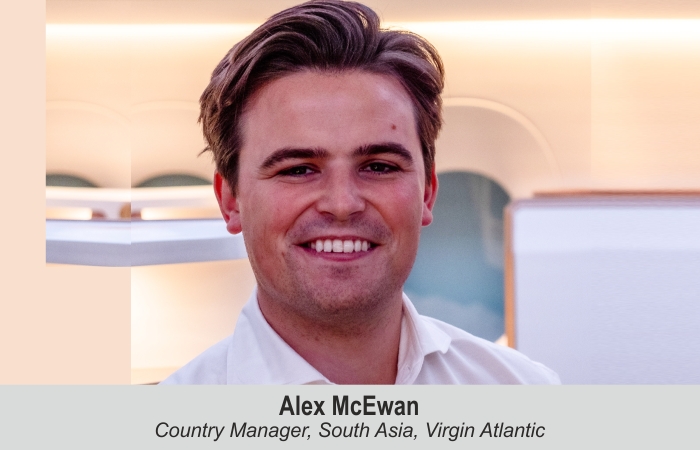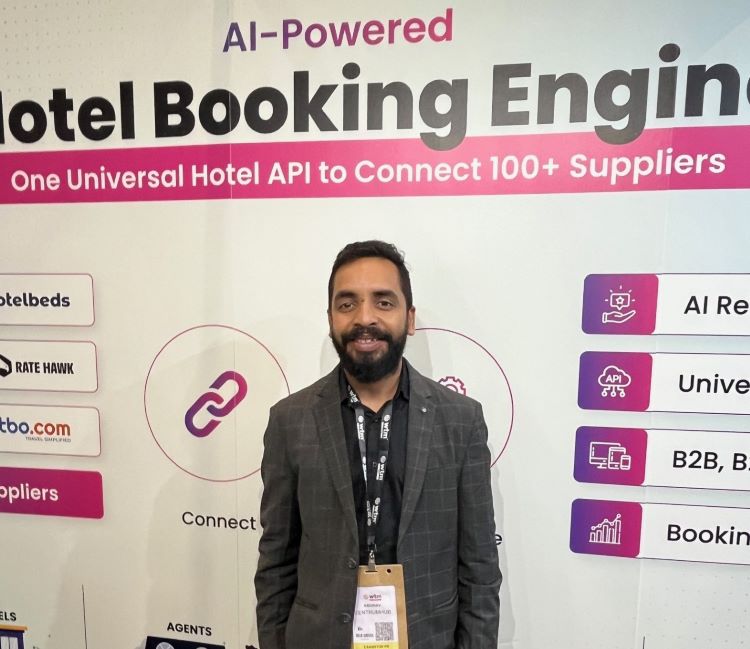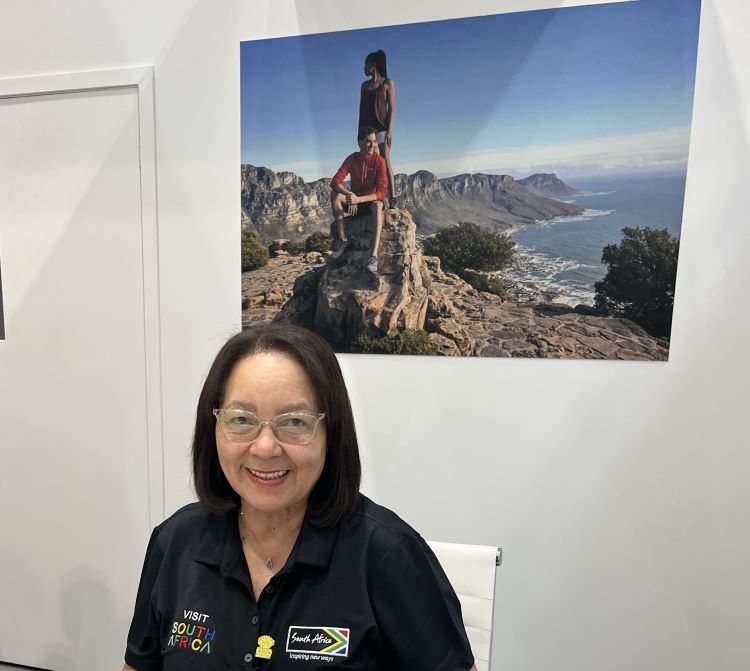Alex McEwan, Country Manager, South Asia, Virgin Atlantic, says they are on their way to upgrading their aircraft on the India routes, ensuring more comfort and benefits for the end user. The airline will also work more keenly with the travel trade.
Nisha Verma
Virgin Atlantic is presently operating five weekly flights from India to the UK, and Alex McEwan says that they want to operate more but there are constraints. India continues to be a crucial market for the airline and he adds, “We have been in India for 21 years, which shows how committed we are to this market. India was a very fast-growing market before the pandemic, but I still feel that it has a lot of growth potential for us. The great thing about the UK market for India is that it has a mix of traffic that includes business, leisure and VFR travel, which has been prominent for us since we started in September 2020.”
Dependence on the trade
For Virgin Atlantic, the travel trade has been a huge support for the last 12 months, claims McEwan. “It has allowed us to survive essentially as a business, because we don’t have a large direct channel, so we are very dependent on our travel agents. Hence, with travel restrictions being very complicated for passengers and with things changing all the time and being very dynamic, it’s been even more important for us to have that relationship with the travel trade and make sure that we can demystify and simplify some of these travel restrictions so that our customers fully understand what’s required when they travel.”
He shared that they have hosted webinars and conference calls for the trade. “We stay in contact with our travel agents over email and WhatsApp. We also have a dedicated trade portal called VSFlyingHub, and we encourage all our trade partners to sign up for that. It has all the important information about the service, travel restrictions and any other relevant update. We are grateful to the travel trade for their support and look forward to working closely with them on recovery,” he shares. And, with travel restrictions being plenty and varied, McEwan highlights how the importance of the travel agent has grown manifold. “With our relationship with the travel agents, we can push this message out to the customers and make sure that they are prepared, because if passengers miss just one of those steps (travel requirements for travelling into the UK or back to India from the UK), they may be denied boarding and they may not be able to travel,”he says.
Making it work
Last year was one of the most difficult years financially in the airline’s history, claims McEwan. “The most important step for us was to ensure that we secure the future of the airline, so we delivered a refinancing package worth £1.2 billion as our recapitalisation plan, which was with the support of our creditors and shareholders to ensure to have the confidence. Besides steps to protect the business, we significantly reduced our costs. We had to take some very painful decisions. For example, we reduced our workforce globally from 10,000 people to 5,000 people,” he shares.
They also simplified the fleet. “We retired all our four-engine aircraft. This was already in our fleet plan, but we accelerated it both to reduce costs and to improve sustainability,” McEwan says, adding, “We had to close down our Gatwick base, which saved us some cost, but it also ensured that we have better connectivity at Heathrow. We can now take advantage of connections from India to these fantastic destinations.”
Virgin Atlantic is now upgrading its aircraft from 787 to A350 on Indian routes. “The A350 is our newest and largest aircraft. Customers from India are going to love it, as we get very good feedback from customers across the rest of the world when they fly on this aircraft. This change has been driven by a strong demand from India. We’ve had full flights departing from India and the new aircraft would allow us to add extra 80 seats per flight, which is extra revenue for us. It also has customer benefits,” he shares.
Learnings from the COVID pandemic
According to McEwan, one of the most important learnings for every business and for every crisis has been that ‘cash is king’. “Another thing for airlines to understand is that passenger behaviour has changed radically. We need to ensure that we reflect that in the offer that we give to our customers. It’s important for us to offer a flexible booking process, something they would appreciate. We need to have some temporary measures apart from the long-term ones,” he says.
 TravTalk India Online Magazine
TravTalk India Online Magazine





